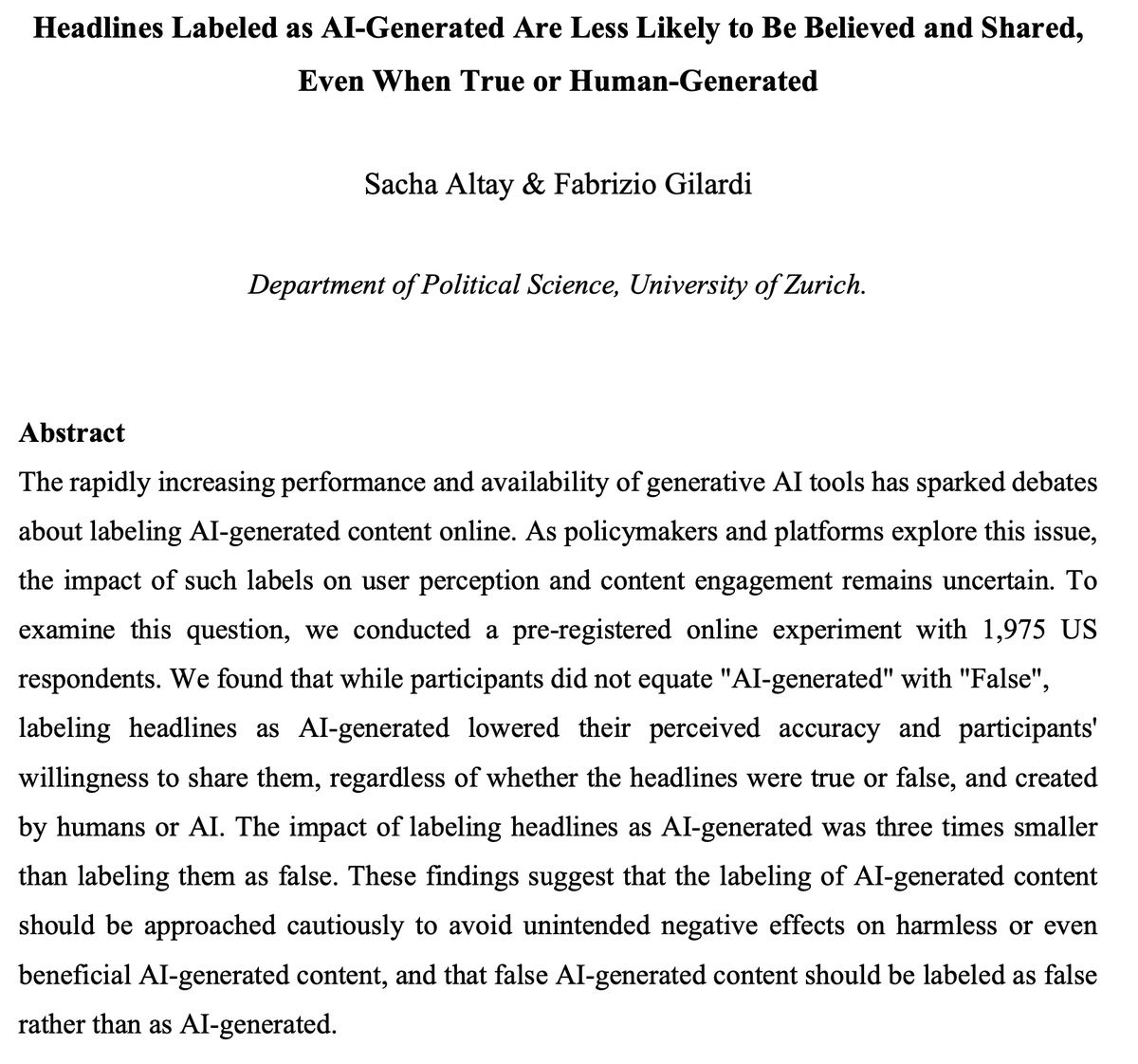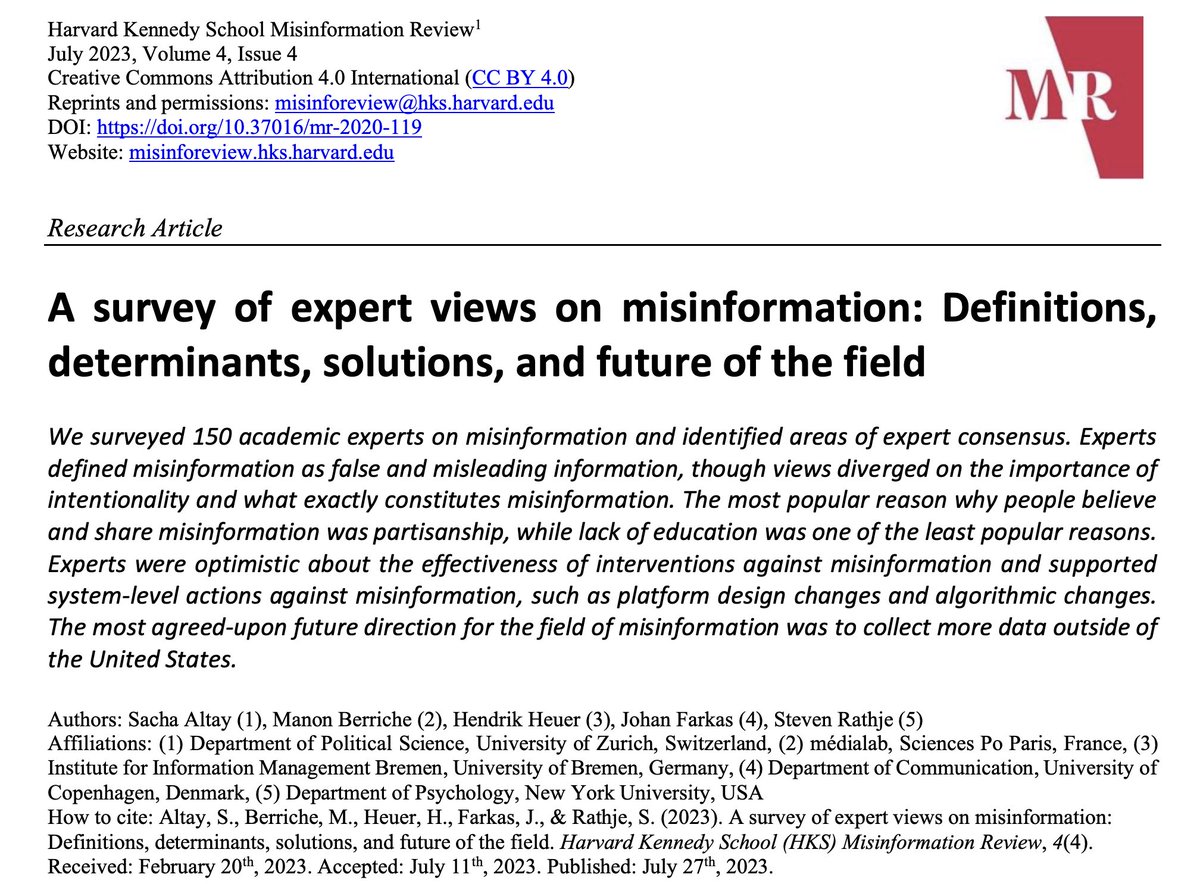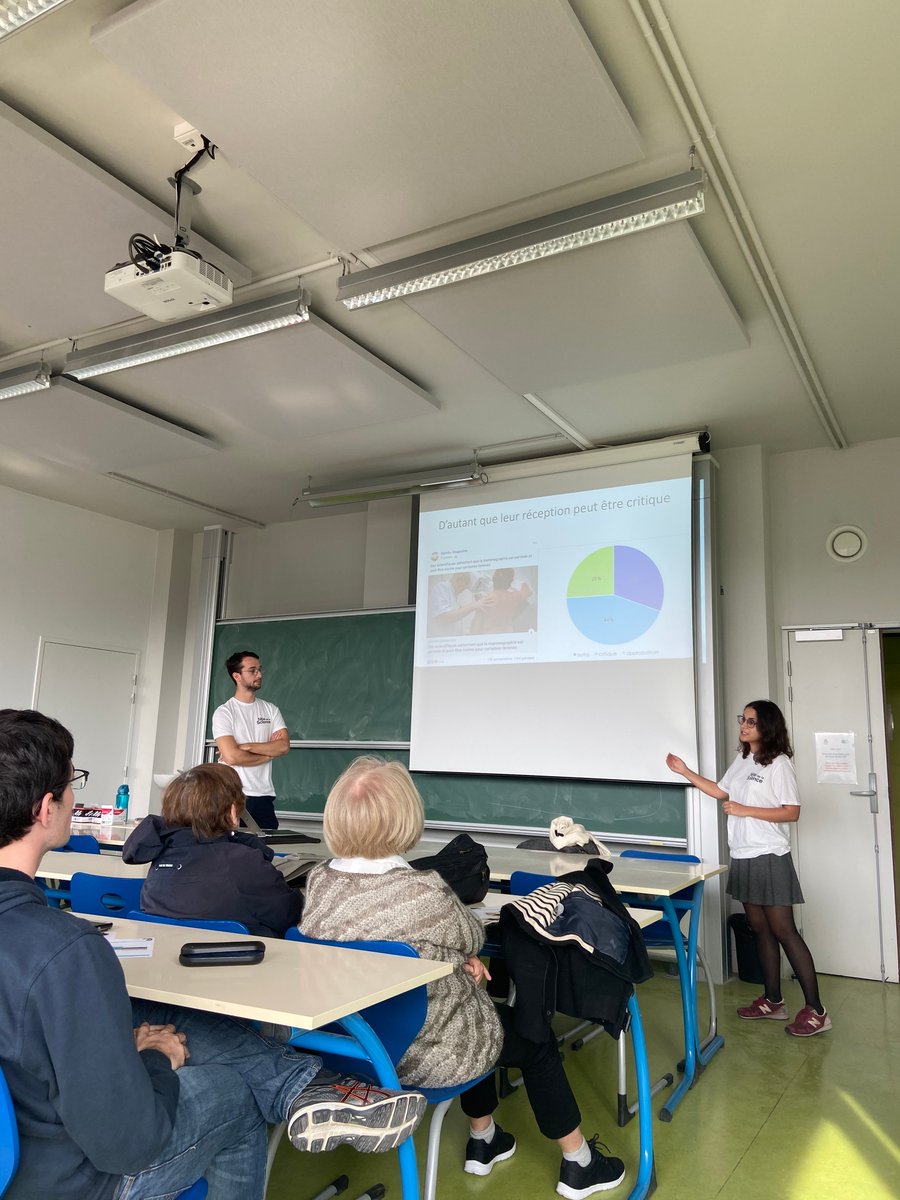
Postdoc @IPZ_ch🇨🇭| @Cognition_ENS PhD 🇫🇷 | 🔎 Misinformation, misperceptions, social media & (dis)trust 🦹♂️
How to get URL link on X (Twitter) App


 We conducted a pre-registered online experiment with 1,975 US respondents.
We conducted a pre-registered online experiment with 1,975 US respondents. 


 1) Definitions
1) Definitions

 Think about it: how interesting would it be if COVID-19 was effectively a bioweapon released by China? Or if the moon was populated by “bison, goats, unicorns, bipedal tail-less beavers and bat-like winged humanoids”?
Think about it: how interesting would it be if COVID-19 was effectively a bioweapon released by China? Or if the moon was populated by “bison, goats, unicorns, bipedal tail-less beavers and bat-like winged humanoids”? 

 Fake news are consumed by a minority of internet users (whether it’s on Twitter or Facebook) and are shared by an even smaller minority (0.1%).
Fake news are consumed by a minority of internet users (whether it’s on Twitter or Facebook) and are shared by an even smaller minority (0.1%).